Mamady Berete, a Guinean with a university degree in Guinea, considers vocational training a winning choice. "I decided to give my career a new dimension by switching paths professionally and going into welding and fitting. For me, Québec stands out due to the quality of education and the many job opportunities." Halfway to competing his DVS, he is sharing his story.
His Journey in Guinea
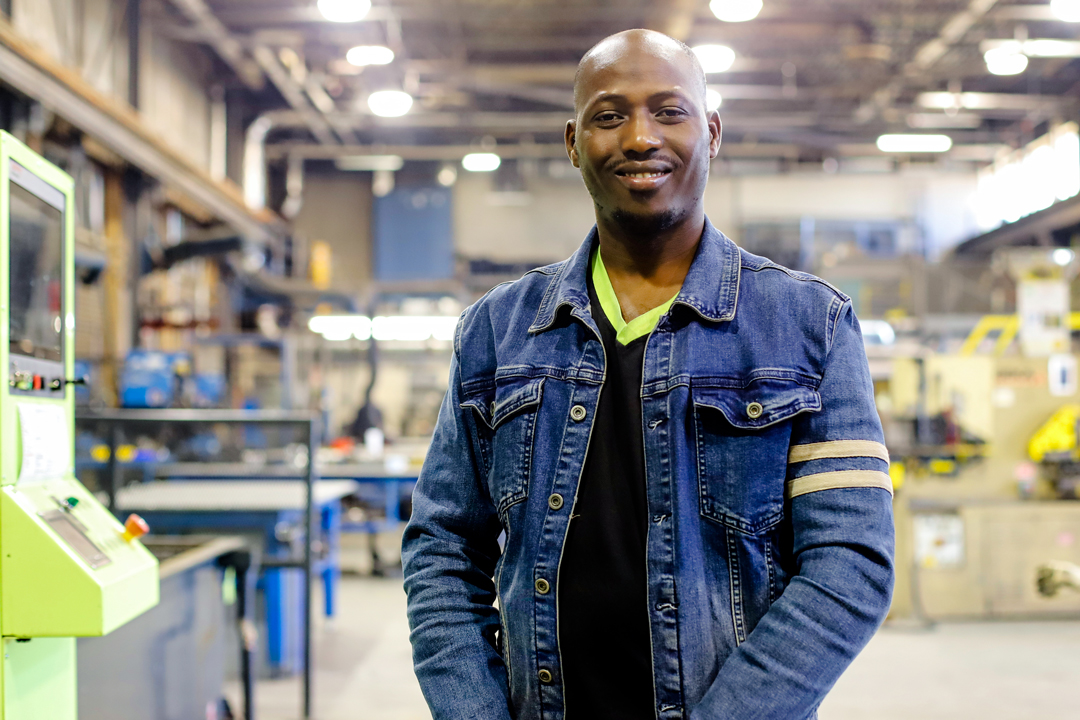 Mamady Berete was born in 1992 in Conakry, Guinea’s capital. He graduated from the Institut supérieur des mines et de la géologie de Boké (ISMGB) in 2015.
Mamady Berete was born in 1992 in Conakry, Guinea’s capital. He graduated from the Institut supérieur des mines et de la géologie de Boké (ISMGB) in 2015.The Republic of Guinea is a developing nation in West Africa. Rich in natural resources, it is nicknamed "West Africa's water tower." It has significant mineral resources, including bauxite, gold, iron, diamonds, oil and uranium.
Mamady Berete was born in 1992 in Conakry, the capital of Guinea. He graduated from the Institut supérieur des mines et de la géologie de Boké (ISMGB) in 2015. After that, he worked for various companies specializing in ore processing and railway construction. In 2019, newly married, he moved to Turkey. Benefiting from a scholarship, he studied the Turkish language before continuing his studies in materials engineering. While writing his master's thesis, he decided to come and try his luck in Canada. "I want to acquire professional and practical skills in my field," he explains. "Canada is a dream I have had for a long time. I chose a trade in metallurgical technology for which there is a strong demand, both in Canada and Guinea."
Internationalization of Education
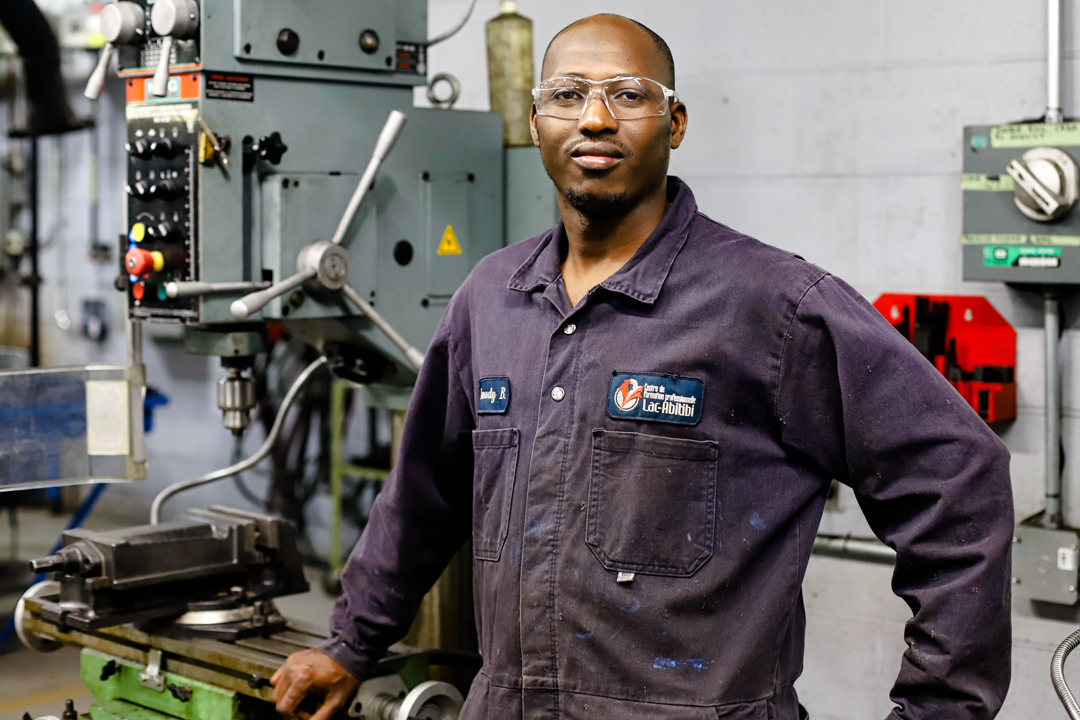 "The process to come and study in Canada is very specific. Refusals do not come with explanations. It took a lot of tenacity. I was accepted on my fourth attempt to get my visa." Mamady Berete, Student, Welding and Fitting
"The process to come and study in Canada is very specific. Refusals do not come with explanations. It took a lot of tenacity. I was accepted on my fourth attempt to get my visa." Mamady Berete, Student, Welding and FittingOrganizations helped the thirty-year-old get through the administrative process and adapt to his new environment without too much trouble. Among them, he mentions Québec métiers d'avenir. "From my first contact with the organization, I received a warm welcome. This is what motivated me, among other things, to see my project through. My advisor spared no effort to support me in obtaining my visa. When I wanted to give up, she encouraged me. Their platform is designed as a one-stop shop. Their program is well structured. I have recommended their services to several of my friends."

"I want to acquire professional and practical skills in my field and Canada is a dream I have had for a long time. I chose a trade in metallurgical technology for which there is a strong demand, both in Canada and Guinea."
…and in Abitibi
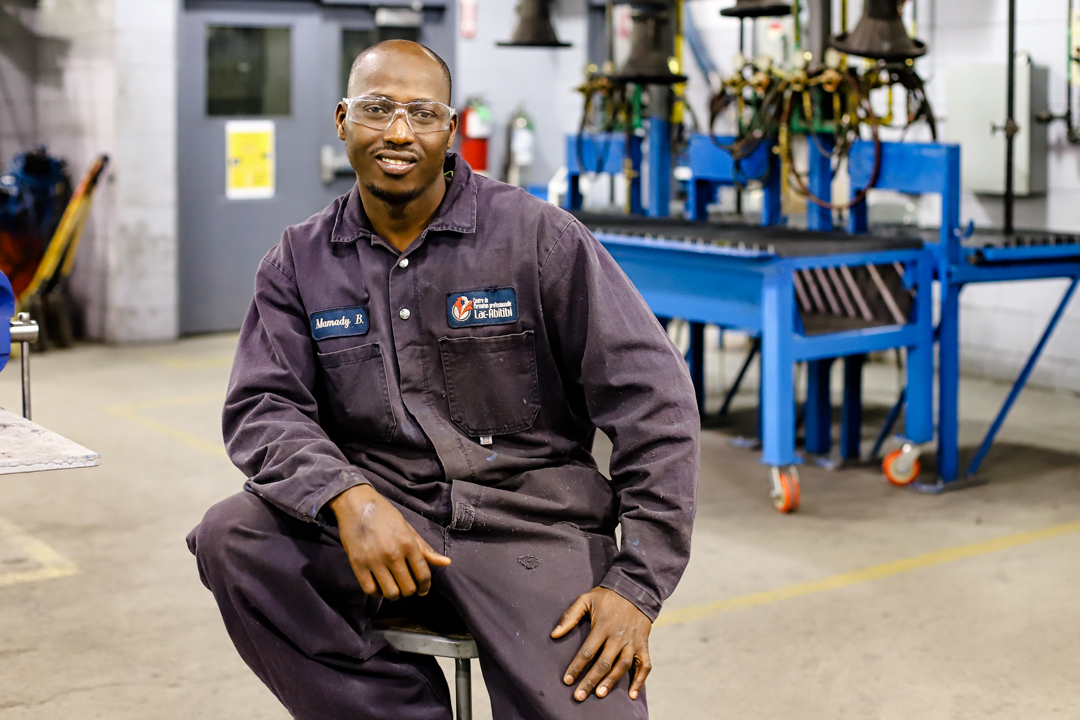 Studying abroad requires a curiosity for learning and even more perseverance. There are many challenges to overcome. With the help of organizations, several thousand immigrants come to Québec to study.
Studying abroad requires a curiosity for learning and even more perseverance. There are many challenges to overcome. With the help of organizations, several thousand immigrants come to Québec to study.Mamady was also welcomed in Abitibi in August 2021 by the Carrefour jeunesse-emploi team. "They helped me get settled and helped me adapt my curriculum vitae to fit the realities of Québec. They are nice people." He settled in La Sarre. "I noticed while doing my research that the training centers were located according to the labour needs, which is what brought me to Abitibi." Indeed, Abitibi-Témiscamingue is one of the main resource regions in Canada. Its economy is primarily based on mining activities (copper, gold, zinc) and the logging industry. These two sectors provide thousands of jobs.
"The process to come and study in Canada is very specific. Refusals do not come with explanations. It took a lot of tenacity. I was accepted on my fourth attempt to get my visa."
Work-Study Training
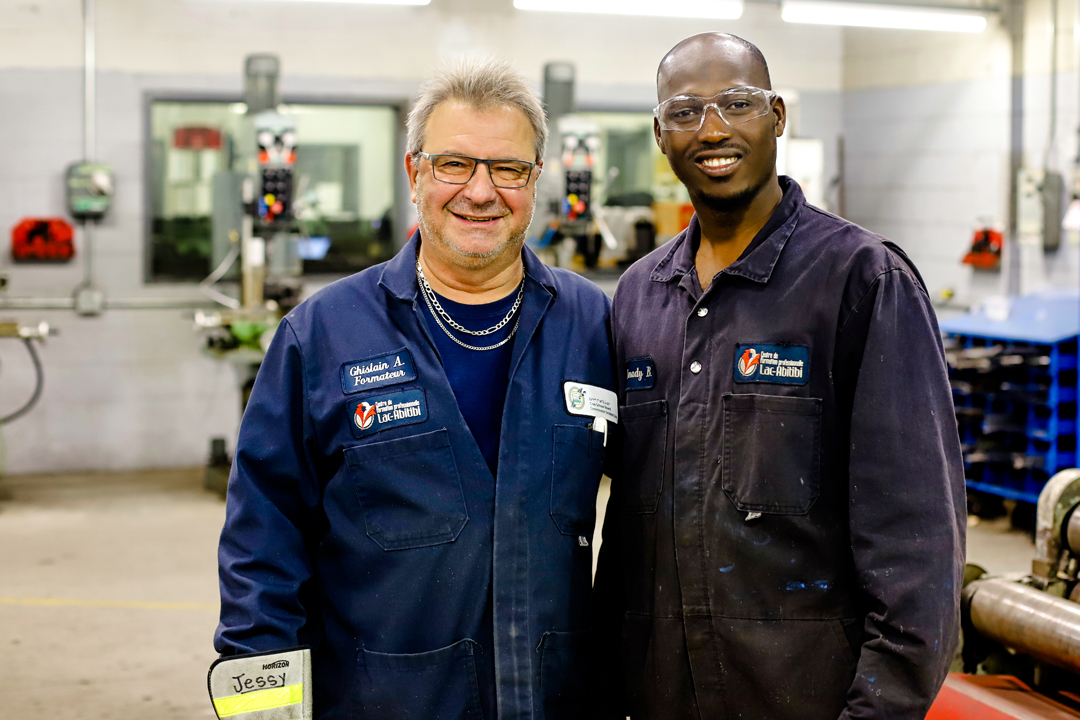 Mamady Berete chose the Centre de formation professionnelle Lac-Abitibi. "I loved the guidance offered by my centre, the teachers and the support staff. They kept my motivation intact," he recalls while standing next to his teacher, Guislain.
Mamady Berete chose the Centre de formation professionnelle Lac-Abitibi. "I loved the guidance offered by my centre, the teachers and the support staff. They kept my motivation intact," he recalls while standing next to his teacher, Guislain.Mamady Berete chose the Centre de formation professionnelle Lac-Abitibi. "I loved the guidance offered by my centre, the teachers and the support staff. They kept my motivation intact." He enrolled in the Welding and Fitting DVS. This 1,800-hour training program in metallurgical technology is offered in a work-study format. Part of the hours are spent at a company, Les Aciers J.P.
Work-study programs in vocational and technical training have been offered in Québec for about a decade in some 50 institutions, and they are very popular. According to a study conducted by the Association québécoise Alternance travail-études in collaboration with the Université du Québec à Montréal, work-study is constantly on the rise in the province, and more and more programs are being offered in this format. "It pushes us as students to put into practice what we have learned and develop our autonomy."
Consult other videos related to the trade and training under the Useful links and videos tab on the Welding and Fitting program page.
Work-study programs allow candidates to complete at least two workplace practicums, representing a minimum of 20% of the program hours. For Mamady, this is very different from what he experienced in Guinea, where the emphasis was on theory. "I am passionate about the practical side of everything metal through large-scale manufacturing of equipment in the mining and forestry sectors." Students quickly get the facts about the realities of the job. "It's useful; we all know the challenges when it comes to choosing a job."
By bridging the gap between school and the job market, students learn differently, and through collaboration, educators stay in touch with the realities of the job market. "This makes the teaching more interesting and allows students to apply the skills they have learned," says the student. "With the internship, we have the opportunity to make professional contacts and better understand the realities of the job market in our field. It makes the transition after graduation easier. The work-study format anchors our training in the real world, in what the industry is looking for. We are better equipped and able to respond effectively to a company's needs."
"The work-study format anchors our training in the real world, in what the industry is looking for. We are better equipped and able to respond effectively to a company's needs."
A Family from Guinea in La Sarre, Abitibi
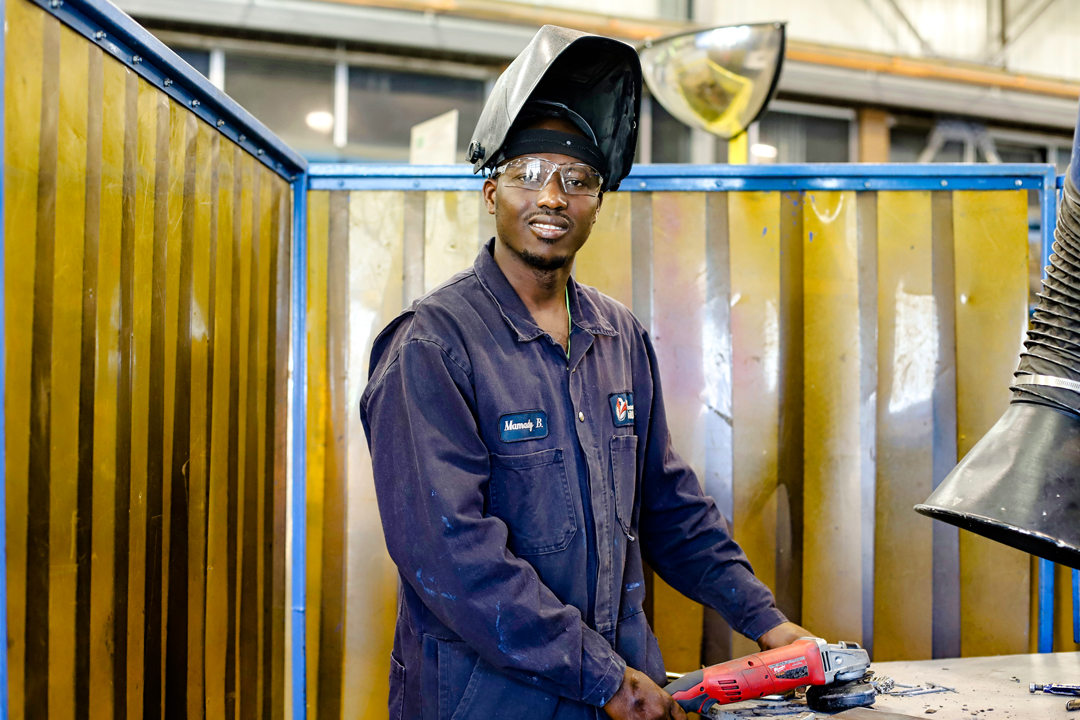 Next step? Mamady's wife, who is a nurse, will soon be joining him in Québec.
Next step? Mamady's wife, who is a nurse, will soon be joining him in Québec.Mamady's wife, who is a nurse, will soon be joining him. He hopes she will like it here. "The decisions about our future will be made together." The future vocational training graduate dreams of building something between Guinea and Canada that would benefit both countries.
"Studying abroad requires a curiosity for learning and even more perseverance," concludes Mamady. What advice would he give to those who are thinking of following in his footsteps? "Find your area of interest, establish your study project and go for it, try to achieve it! You won't go wrong by choosing Québec, it's the best destination for vocational training."
